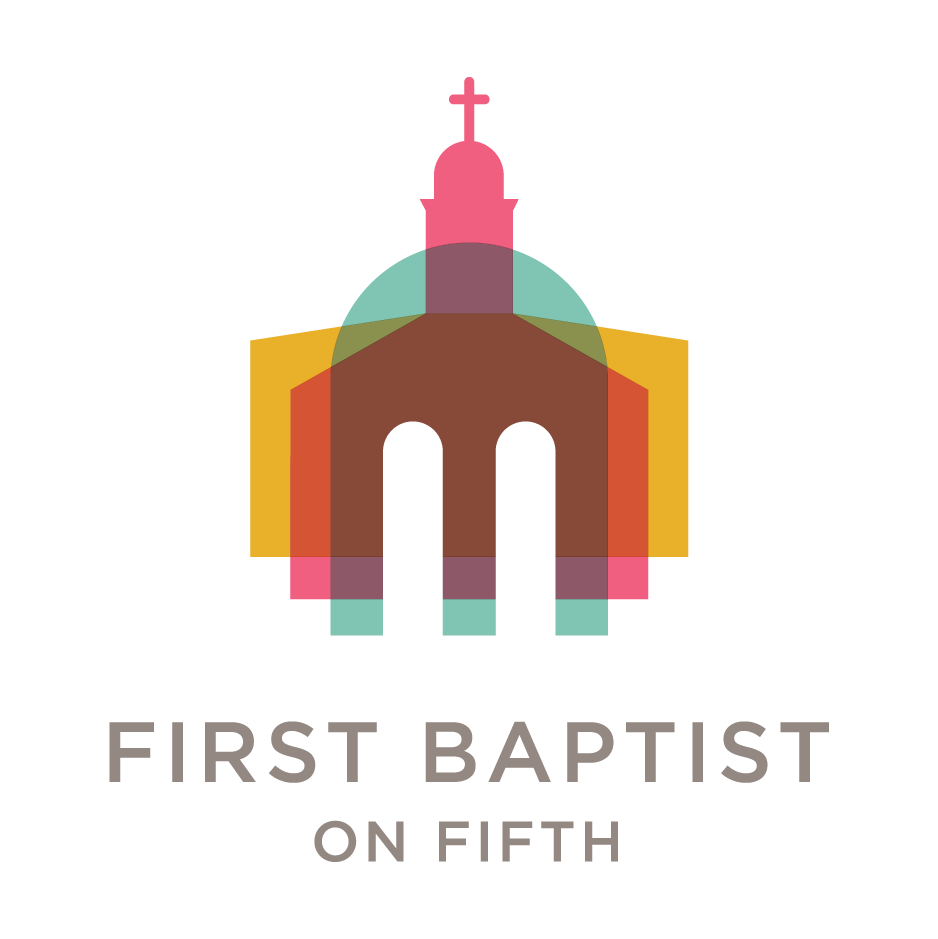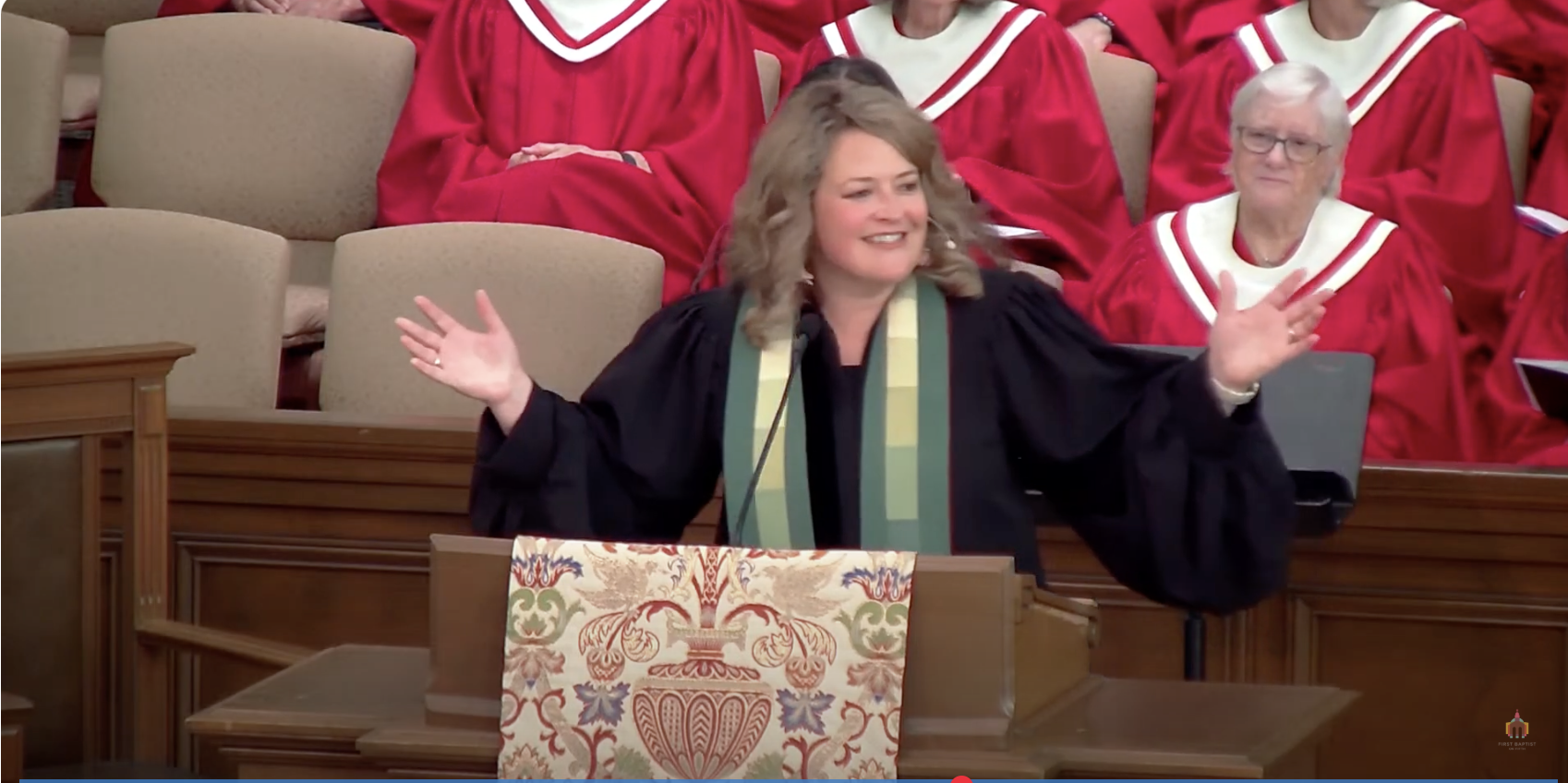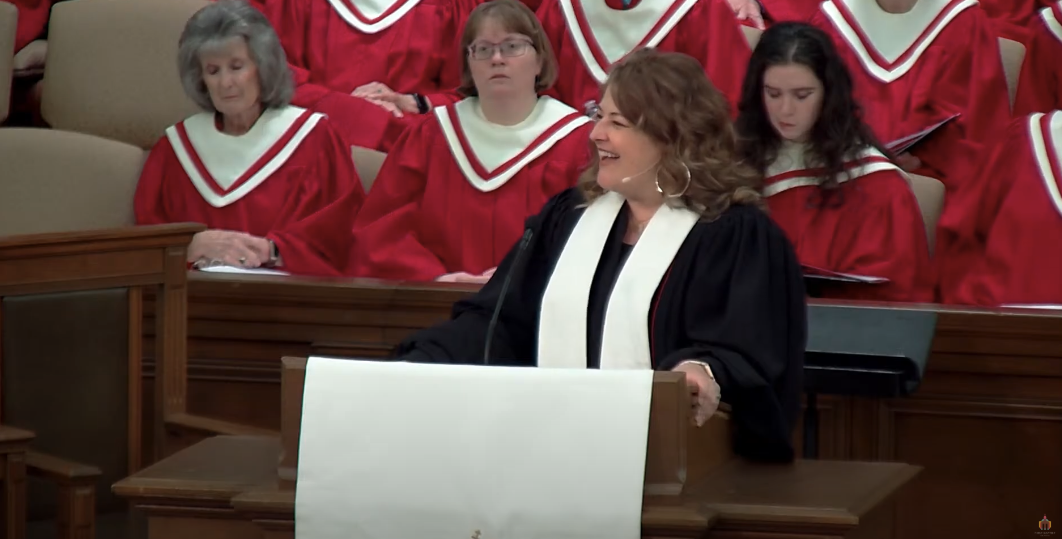I Barbara Brown Taylor once told a story about a day she went to her local nursing home one afternoon to celebrate communion with the guests there. It was a semi-regular practice of hers, you see. Upon her arrival, a dozen or so folks would have been wheeled in their wheelchairs into the television room, where there, she’d set up the communion elements. Many of these residents had a high level of need. Some dazed into space, others dozed with heads drooping. Some yelled at her, and others treated her as if she was there to rob them. She said about the experience, “it’s one of the hardest things I do because I sometimes doubt the power of the sacrament to break through their fog. I say all the comfortable words and wonder if anyone hears them. I stand there with my arms raised over the bread and wine and suspect that I might as well be flying a kite.”
She was warned one visit that because of the lateness of the day, many medications were beginning to wear off. Folks were more awake than usual, and one resident sang “Row Row Row Your Boat” so loud throughout, that Barbara finally had to clap her hands to get everyone’s attention.
“What shall I read from the Bible this afternoon,” she asked. “What part would you like to hear?”
And from somewhere in the room — she couldn’t find it exactly — a woman’s broken voice surfaced above the din. “Tell us a resurrection story,” she said. It was as if her words settled the cacophony. “Yes, yes!,” one said, and then another. “Tell us a resurrection story!”1
II The great preacher, Fred Craddock, once said: “To be Christian is to be enrolled in a story, and anybody who can’t remember any farther back than his or her birth is an orphan.”2 We are enrolled in a story, friends! It’s a redemption story and a liberation story, a creation story and a birthing story, a salvation story and a resurrection story! A collection of them, actually, captured right here in a handful of books that tell the story of God. This summer in Genesis reacquainted us with the origin stories of our faith, those first narratives of God and humans and all creation figuring out how to live together. They reminded us that the story in which we find ourselves goes much farther back than our lifespan, or even the lives of those we’ve loved. Our story is one of ancestors and descendants, one we receive from those who have come before, shepherd in our season, and pass along to the next. Here in our church, we promise our youngest, littlest ones and their families that, together as their preachers and teachers, their friends and mentors, we will sing for them the songs of faith and teach them the stories of Jesus so that in their own time, they can choose to make these stories their own. The stories we tell about Jesus enroll us in the larger story of God, one that comforts and challenges, locates and dislocates, provokes and surprises, grounds and lifts us time and time again.
Yet here in church, we don’t just tell stories about Jesus, but rather we hear the stories that Jesus told! Many of them, actually, for storytelling was Jesus’ m.o. Perhaps you remember how this past spring during Lent, I preached through Jesus’ Sermon on the Mount found in the Gospel of Matthew. Well this fall, in part as a companion to that experience, I’ll be preaching through Jesus’ parables again from the Gospel of Matthew, in the hopes that this gives us ample space to enter into these stories of Jesus for the purpose of transformation. But for today, we’re talking about the purpose and function and gift of stories themselves, particularly the parables that Jesus uses to teach.
In some ways, we’re picking up where we left off after the Sermon on the Mount, because even if Jesus’ style and method for teaching shifts, his message remains. Instead of the direct lessons from the Sermon on the Mount like “don’t judge, lest you be judged,” the parables offer us indirect narratives. We’ll trade eyes for eyes with stories of seeds and soils, vineyards and lamps, yeast and pearls. We’ll hear about farmers in the field, and masters of a home, fishermen casting nets and surprised growers of trees.
I was reminded this week that nearly ⅓ of all the recordings of Jesus’ teachings were teachings through parables. Parables are simple, short stories using everyday items and situations that most anyone can understand, but with powerful meaning and memorable, lasting effect.3 The word ‘parable’ comes from the Greek, ‘parabole,’ which fundamentally means “to set beside’ or ‘to compare.’ Parables, on the lips of Jesus, then, offer comparison between everyday life and the coming kingdom, or reign, or ruling activity, or dream of God in this world.4
Yet as lovely as comparisons are, as delightful as the art of storytelling is, if we read the scripture closely, we’ll find that not everyone enjoyed Jesus’ stories. For Jesus is intimately aware of how disappointing people’s responses are to his teachings. The Pharisees oppose him. The hometown friends reject him. The crowds can’t translate their interest in him into passion for his message. The pushback to Jesus grows, gaining traction and persistent threats to destroy him. As one writer says, “it’s no accident that Jesus changes his teaching style and becomes a teller of parables right at the moment that his ministry is experiencing its strongest repudiation.”5 Yet in today’s text, we hear that these people, as Isaiah once said, are “listening but not understanding, looking but not perceiving.”6 So on the heels of Jesus’ first telling of a parable in the Gospel of Matthew – the parable of a sower who went out to sow that we’ll study next week – we hear in today’s reading that Jesus’ disciples are curious. When they ask him, “why do you teach them in parables?,” Matthew makes Jesus’ intent clear: because the people around him have closed their ears and covered their eyes. They’ve stopped listening and seeing.7
III Anthony de Mello once told a story of a prisoner who lived in solitary confinement for years. He didn’t speak to anyone at all; even his meals were shoved through a crude opening in the wall. One day, the prisoner noticed that an ant had crawled into his cell. And the man was fascinated! He watched where the ant crawled, he held the ant close to his face to better observe it, he fed the ant with a grain from his dinner, he protected the ant under his tin cup at night. One day it struck him: it had taken ten long years of solitary confinement to open his eyes to the loveliness of an ant.8
As we prepare for a season of parables, let us become ant-gazers and deep listeners, let us not cover our eyes and stop up our ears, and do our best to receive these startling and instructive parables in such a way that we can be changed, which of course gives us practice in how we receive each other’s stories and our own as well. So how shall we do this?
First, we must pay attention to context. Each week as we explore these parables, it will be critical for our understanding to know how laborers in a vineyard were actually treated by a landowner, or what farming practices were standard among farmers in 1st century Galilee. I haven’t labored in a vineyard anytime of late, nor have I been a shepherd searching for a lost sheep – and I don’t think you have either! – so it might help us to have a sense of how actual farmers, laborers, and shepherds would have lived to better understand how they would have heard these stories of Jesus.
On Friday night, our family had a fun evening at the launch party for the Bookmarks Festival of Books and Authors, which will take place later this month. It was a delightful evening to hear about the authors who will be here, and how their stories will be told from classroom to street to page and back again. I was struck by the clear imperative that the Bookmarks team felt to host a wide range of authors – differing races and ages, genders and sexual orientations, backgrounds and nationalities, abilities and interest – each speaking from their own context so that the reader can find their place within. The staff repeated that throughout the night: “we want every reader to find their place,” and one speaker illustrated that point with this quote from writer Rudine Sims Bishop: “Books are mirrors when readers see their own lives reflected in the pages. Books are windows when they allow readers a view of lives and stories that are different from their own. Books become sliding glass doors when readers feel transported into the world of the story and when they feel empathy for their characters.”9 Knowing the context of a story, appreciating the context of an author, entering into the context of our own lives creates the experience of a mirror, a window, a sliding glass door through which we can enter in.
After we pay attention to a parable’s context, we must get clear about the parables’ content. Scholar Amy-Jill Levine finds three common themes in Jesus’ parables: economics, relationships, prioritizing. Economics, like the parables concerning wages for the day, ownership of the land, lost coins and crushing debts. Relationships, like stories of parents and lost or envious children, neighbors and colleagues, people who live alongside each other in this life like weeds and wheat, or sheep and goats, or good Samaritans and indifferent religious leaders. Prioritizing, like aligning one’s life with the sure expectation that God’s kingdom was indeed at hand, and we must respond with urgency – keeping the lamps lit – and discernment – holding fast to that pearl of great price.10
You know, it’s not an accident that sometimes the loudest voices hollering about what Jesus said aren’t actually saying what he said. You only have to scan the news, or scroll through your feeds, or thumb through podcasts to find that Jesus must care a lot about a particular country, or that he must really love freedoms to do what we want to do without any responsibility to another, or that he has really strong opinions about what we do with our bodies, or that he would just leave the institution and burn it all to the ground, etc. etc. etc. Funny thing – we don’t hear those loud voices telling the story about the landowner who gave the same wages to the one working all day as he did to the one who started just before closing time. We don’t hear the story of cherishing that which is lost so much that you upend your life to find it. We don’t hear the stories of gracious fathers or kind neighbors (just stay home and stay afraid!), of finding what’s lost (just go buy a new one!), or waiting with readiness and anticipation (just scrap it and move on!). Remember what Amy-Jill Levine told us: the parables of Jesus are Jesus doing some afflicting, making us all uncomfortable with the startling truth! Yet when we’re not ready to hear them, we plug our ears and redirect our eyes, missing the good news right unfolding right in front of us.
IVRachel Held Evans once told a story from a conference she and her friend, Nadia Bolz Weber, once started called ”Why Christian?” They had tapped right into the stirring hearts of people who had their story’s context questioned and their content ridiculed, whose faith was decried in some pulpits and dismissed by some peers. So why stay Christian? Why keep enrolling in this story? A quiet fell over the room as Rachel and Nadia posed the question to this group, and, as she tells it, “as each speaker approached the microphone to share their stories – some with the practiced cadence of working preachers, others with a quiet vulnerability, and all with the convocation of people whose faith has been hard-won – it became clear that there simply remains no greater apologetic for the Christian faith than a life caught up in the story of Jesus.
“I am a Christian,” Episcopal priest Kerlin Richter said, “because having a body wasn’t always good news for me, but then I met Good News that had a body, In Jesus, I met a God who spits and kisses, who yells and cries. I am a messy and embodied person, and this is a messy and embodied faith.”
“I am a Christian,” Black author and racial justice advocate Austin Channing Brown said, “because God knows my pain, not in an abstract way, but in a real, bloody, enfleshed way.”
The line grew longer, as people began to stand to share their story. Rachel noted how diverse the group was, naming their religious and racial and age and gender diversity, smiling at the “crunchy dreadlocked mamas, tattooed and foul-mouthed priests, sweet-talking Southerners, and stiletto-boasting fashionistas. Looking at us from the outside,” she laughed, “you’d have no idea what we all had in common.”
Yet together they told a resurrection story. They spoke of sin and repentance, baptism and confession, incarnation and mystery and Spirit and Word made flesh. They gathered around the table. They ran out of tissue.
As they prepared to finish, Rachel affirmed the gift of these stories that bring her back again and again to Jesus. “I am a Christian,” she concluded, “because the story of Jesus is still the story I’m willing to risk being wrong about.”11
V Some believe that telling stories to change the world is like trying to break up concrete by throwing light bulbs against it,” Fred Craddock once said. “But I’ve been present when someone threw light bulbs against concrete walls, and the walls cracked and fell.”12
Friends, may we receive the stories of Jesus in all their fullness. May we hear each other’s stories of Jesus with curiosity and care. May we tell the stories of Jesus in our own lives, with boldness and imagination.
And let those who have the ears to hear, hear! Amen.




